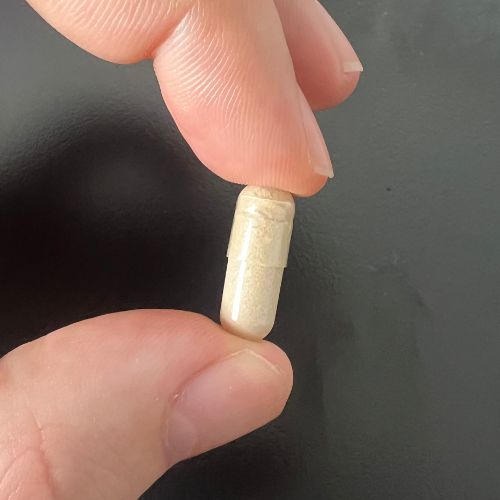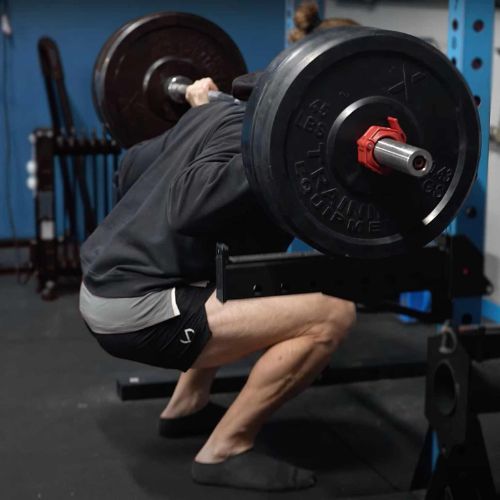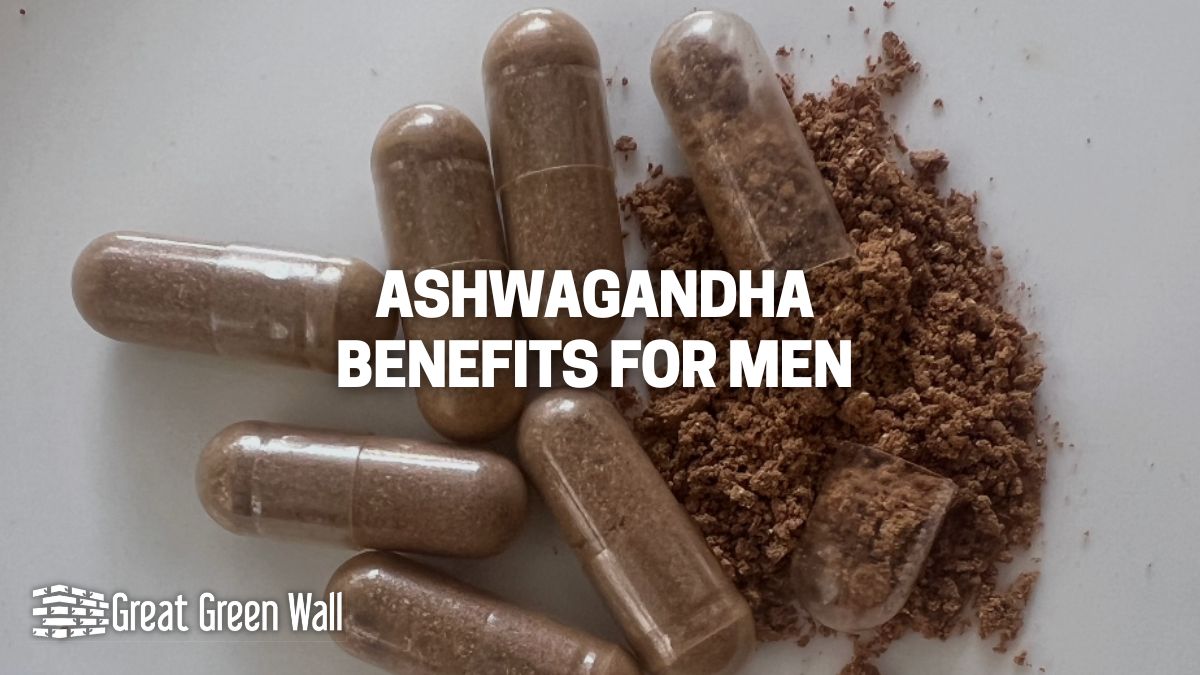Every year the world spends over $150 Billion on supplements, and in America alone, people buy over $30 Billion worth of herbal remedies. With that kind of money going out, we should expect some substantial benefits coming back our way.
Sadly, many supplement formulas and their ingredients simply aren’t effective. But I’m glad to report that Ashwagandha is quite effective, and at a great many things. In previous pieces we explored the safety of Ashwagandha, but here we’ll focus on the benefits, specifically for male health.
Key Findings
Quick Facts About Ashwagandha
Ashwagandha and its root are from the Withania somnifera plant, also called Indian Ginseng. It is grown throughout Northern Africa and Asia, and has been recognized in several preparations for its beneficial properties.
Most uses of Ashwagandha are taken orally, in powdered or aqueous form.
Anxiety
Millions of people all around the world suffer from some form of anxiety–stress related to our jobs, personal relationships, family concerns, or simply the hustle and bustle of a chaotic world. And anxiety among men is one of the most widespread issues related to our health.
One of the most well-established uses of Ashwagandha is in mitigating stress, making it perhaps one of the most beneficial herbs on the market for male health. In fact, one rigorous, double blind study found that people taking Ashwagandha had a 44% drop in anxiety scores. Another study found that the amount of Cortisol in our system plummets when taking Ashwagandha.

Lowering our Cortisol and our stress levels have a number of positive health outcomes. Better sleep, lower blood sugar, weight-loss, and more, can all be attributed to
Sleep
The consequences of not getting enough sleep are obvious to everyone. But the health outcomes might not be as obvious. Insufficient or poor quality rest can lead to obesity, diabetes, and heart disease–the latter of which kills 1 in 4 men.

Suffice to say that better sleep should be a goal of every man. And that’s where Ashwagandha comes in.
Nearly every study of Ashwagandha in the clinical literature points to better and more sleep when taking the herb. One study found that as little as 120 mg per day gave people significantly better sleep, while another more recent study found that 300 mg could help even those with diagnosable sleep issues.
Weight-Loss
The first mechanism by which Ashwagandha can lead to weight loss in helping us lower our stress and Cortisol levels. A mountain of research has led medical professionals to conclude that long-term anxiety and stress leads to not only weight gain, but body fat increases.
Several factors go into this process, but one of them is how our blood-sugar spikes when we’re stressed. Over time this leads to insulin-resistance, and our body starts converting our blood-sugar into fat. Not only that, but it converts it into the fat most men are trying to avoid–around our midsections.
A secondary outcome of lowering our stress with Ashwagandha is in decreasing our appetite while stressed. One study even found a 3% decrease in weight from taking Ashwagandha.
Other ways Ashwagandha can help men lose weight is by increasing our Testosterone, and helping us build muscle. These two interrelated functions, and how they can help us lose weight, are explored in the next section.

Testosterone
Many of our readers already know that Ashwagandha is a fantastic supplement for increasing Testosterone. This owes to several factors, such as boosting DHEA, but it also comes back around to the stress reducing effects discussed above. It turns out that Cortisol destroys our ability to produce Testosterone at healthy levels.

And healthy T-Levels impact every aspect of Men’s Health, from our hearts to our bone density and our moods. Meaning that Ashwagandha to improve your Testosterone can have far-reaching health outcomes beyond simply improving a hormone score. It’s no wonder we find Ashwagandha in many of the most effective T-Boosters and Men’s Health supplements.
Muscle Building
There’s no bench-press requirement for men as we get older. No more gym classes. And anyone who reads the Great Green Wall knows we’re not pushing a physique type–for men or women. But we do want everyone to be as healthy and happy as they can be.
So maintaining or increasing your strength and muscle tone are important to you, then you should definitely consider the benefits of Ashwagandha. In one regard, as I recently wrote, Ashwagandha can increase muscle strength and size through several functions, including ATP (adenosine triphosphate) recycling and creatine synthesis.

But as we listed above, Ashwagandha also boosts your T-Levels, which in and of itself can lead to muscle development by helping muscle fibers synthesize protein more effectively.
Bone-Health
Most people associate better bone density with drinking milk. Drink more milk, the theory goes, and your bones will simply grow on their own. Unfortunately, this just isn’t true. The fact is that our bones respond to pressure–when more physical exertion is forced on them they then take on Calcium to grow stronger.

The fact is that when men exercise more and build muscle, their bones grow stronger. In fact, this has been so widely accepted that hospitals recommend muscle-building exercise to prevent bone loss.
And it may not seem like a big deal to men in their 20s and 30s, but bone deterioration in older men can lead to falls, fractures, and other serious ailments. Not to mention that weakening bones in men can lead to losing up to an inch in height.
Final Thoughts
In the end, Ashwagandha has been seen in clinical and research settings to improve a variety of health outcomes that are important to men. We’ve already seen in the evidence here that it can help men with:
These in turn affect nearly every health system and mortality indicator that men should consider:
Given all the data, and that Ashwagandha is well-tolerated in every study to date, there’s no real downside to trying it in your supplement routine. And be sure to review our other Ashwagandha articles for more in-depth explanations on how it can help with each individual factor.


Like more info, please